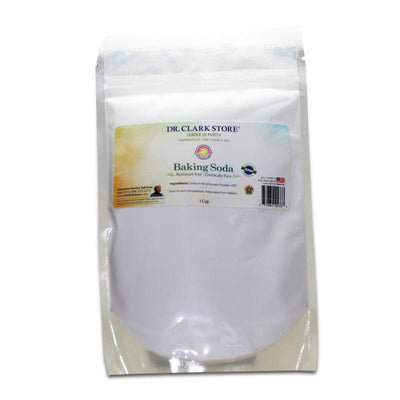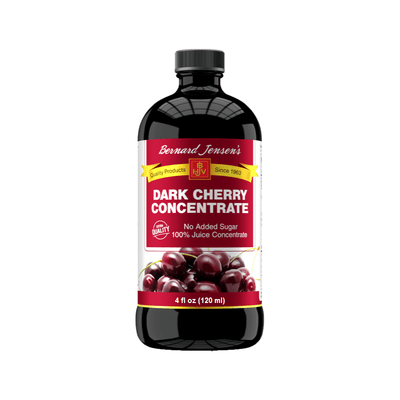3 Reasons Why the Lunasin Peptide Should Be Part of Your Health Plan

Thanks to an ever growing age of discovery, we’re routinely finding out new advantages of items that have been in our lives for eons.
Case in point – soybeans. In the industrial food age, soy is highly present in processed foods in various forms. And while there remains some debate over the health benefits versus the possible links as a contributor to some diseases, it turns out that soy has the highest concentration of a little-known compound called lunasin that can improve health by influencing healthy gene expression.
What is Lunasin?
Lunasin is a polypeptide that was discovered in 1987. Initially found in soybeans, this 43-amino acid chain has since been identified in cereal grains such as oats, barley, and rye.
The lunasin peptide became a subject of study in 1996 to further reveal its biological activity, and since then has been suspected as being a key component of soy’s documented health benefits. Researchers believe this could help to explain some well-established disparities between cultures that include soy as a staple in the diet compared to cultures that do not. Studies indicate that populations that routinely consume soy tend to have lower rates of nutrition-related diseases and longer life expectancies.
Some genetic traits can’t be changed, like height and eye color. Others, however, can be swayed toward more healthful outcomes, like your predisposition to high cholesterol or cardiovascular disease. Lunasin was the first known dietary compound to influence gene expression in this way, which has led to a whole new field of science called epigenetics.
What is Epigenetics?
Epigenetics is a relatively young branch of science that examines how lifestyle factors and the surrounding environment directly affect our genetics without mutating the DNA structure.
Lifestyle choices including diet and exercise, physical and emotional stress, and even exposure to toxins and radiation signal the “switches” that control your genetic code. Essentially, researchers have discovered that outside factors influence the DNA you inherited from your parents. These factors send instructions to your genes, signaling specific genes to be turned on (active) or off (inactive). Rather than altering the genetic code itself, changes are made in gene expression.
Lunasin works in partnership with your body’s own natural defenses against ill health to keep you on a pro-health path with favorable gene expression.
While you can’t change your genetic blueprint, you can influence how your genes are expressed.
Lunasin Boosts the Immune System
The health of your immune system sets the bar for your overall health. How often you get sick, how quickly you recover, and how well you ward off potential illness is largely determined by the robustness of your body’s primary means of defense - the immune system.
Receptors on your immune cells are genetically programmed to react to germs, allergens, and toxins. If they’re working optimally, the threat is removed immediately. However, if the receptors are slow to react, this is a sign that your natural defenses aren’t working adequately, leaving you more susceptible to illness.
Because the lunasin peptide works at an epigenetic level, it stimulates immune cell receptors into action. Lunasin encourages favorable gene expression to keep the receptors in alert mode. With immune cell receptors ready to deflect potential threats, the immune system is better equipped to keep you in good health [1].
Lunasin Reduces Inflammation
Inflammation can be good in terms of the body’s response to trauma, toxins, or foreign objects (bacteria, viruses or allergens). This type of acute inflammatory response creates the heat and swelling associated with the body’s attempt to neutralize the threat and begin the healing process. Examples of acute inflammation include fever when you’re sick, inflamed skin at an injury site, or congestion when you have a cold or nasal allergy.
Chronic inflammation, on the other hand, can be detrimental to your health. There aren’t obvious signs that this type of low-grade inflammation is radiating deep below the surface. In fact, you could have it for years and not know it.
Chronic inflammation puts stress on the immune system because the body’s defense system is always in alert mode. This constant state of panic makes soft tissues and joints susceptible to injuries and degradation - a key factor in how chronic inflammation is linked to cardiovascular disease, diabetes, autoimmune diseases, cancer, and accelerated aging.
It’s no great secret that lifestyle factors influence chronic inflammation. Lack of physical activity and diets high in saturated fats, trans fats, and sugar are pro-inflammatory markers. Your family health history also influences your likelihood of developing inflammatory conditions. Reversing unhealthy lifestyles can help to control the inflammatory response, and so can specific nutritional compounds like the lunasin peptide.
A systemic reaction occurs as inflammation degrades cell structure and function. Organs and whole organ systems lose function and become more susceptible to oxidative stress, harmful effects of toxins, and general wear and tear.
When working optimally, the protein complex NF-kB (nuclear factor kappa-light-chain-enhancer of activated B cells) triggers the cellular response to threats from free radicals, toxins, and pathogens. This aims to protect cells from damage. But when NF-kB is always active as a result of poor lifestyle choices, stress, and continued toxin exposure, the inflammatory response is never turned off.
Lunasin works on multiple levels to reduce inflammation. As an antioxidant, lunasin stops free radicals before they trigger an immune response in the form of inflammation. It can also block some receptor sites on the cell wall to inhibit activation of the inflammatory pathway. And further, lunasin can stop the NF-kB protein from interacting with DNA where the inflammatory cycle is turned on [2, 3, 4].
Lunasin Lowers Cholesterol
Cholesterol comes from two sources: animal-derived foods from the diet and what your body makes naturally. The body makes cholesterol to facilitate certain functions like hormone production and digestion. But too much cholesterol, whether from the diet or from the body, contributes to health problems such as heart disease, stroke, and gallstones. According to the Centers for Disease Control and Prevention, rates of high cholesterol continue to be a significant blemish on the overall health status of Americans, and detection of high cholesterol is happening at a younger age.
The key to managing cholesterol levels lies in keeping the “good” HDL cholesterol high and lowering the “bad” LDL cholesterol. While HDL helps to take excess cholesterol out of the blood, LDL cholesterol is the type that builds up in the blood vessels as plaque that hardens and narrows the arteries.
Sometimes diet and exercise alone are not enough the curb high cholesterol. You may be predisposed to high cholesterol as determined by your genetics. Your genes might be preventing you from removing LDL cholesterol from the blood efficiently or they could be telling your body to make too much cholesterol. The lunasin peptide works two ways to lower LDL cholesterol: 1) Lunasin increases the number of LDL receptors in the liver for better removal from the blood, and 2) Lunasin disrupts cholesterol production by reducing a key enzyme needed for cholesterol synthesis [5, 6].
How to Get More Lunasin in Your Diet
The lunasin peptide occurs naturally in soybeans as well as some cereal grains and medicinal plants. But just like all naturally-occurring compounds with associated health benefits such as vitamins and minerals, bioavailability (how well your body actually absorbs the compounds) is always a gamble. The good news, however, is that lunasin travels well through the stomach and is resistant to the acidic environment that would otherwise degrade the peptide. This means the potential bioavailability of lunasin is good [6].
It should be noted that the levels of lunasin from food sources change based on plant cultivar and growing conditions. So no two bowls of edamame are guaranteed to have the same amount of lunasin.
Luckily researchers have found ways to extract the lunasin peptide from plant sources for use in dietary supplements and functional foods. Standard soy protein powders don’t highlight lunasin content even if it’s present, but there are some more specialized soy-based powders that are enriched with lunasin for those who really want the therapeutic benefits of lunasin.
So if you’re looking for extra immune support or you have a family history of inflammatory conditions, it may be worth your while to consider lunasin as a means of improving your health.
References:
1)Tung, C.Y., Lewis, D.E., Han, L., Jaja, M., Yao, S., Li, F., . . . Chang, H.C. (2014). Activation of dendritic cell function by soy peptide lunasin as a novel vaccine adjuvant.Vaccine, 32(42), 5411-5419. doi:10.1016/j.vaccine.2014.07.103
2) Cam, A., Sivaguru, M., & Gonzalez de Mejia, E. (2013). Endocytic mechanism of internalization of dietary peptide lunasin into macrophages in inflammatory condition associated with cardiovascular disease.PLoS ONE, 8(9). doi: 10.1371/journal.pone.0072115
3) De Mejia, E.G. & Dia, V.P. (2009). Lunasin and lunasin-like peptides inhibit inflammation through suppression of NF-kappaB pathway in the macrophage.Peptides, 30(12), 2388-2398. doi:10.1016/j.peptides.2009.08.005
4) Hernandez-Ledesma, B., Hsieh, C.C., & De Lumen, B.O. (2009). Antioxidant and anti-inflammatory properties of cancer preventive peptide lunasin in RAW 264.7 macrophages.Biochemical and Biophysical Research Communications, 390(3), 803-808. doi:10.1016/j.bbrc.2009.10.053
5) Galvez, A.F. (2012). Identification of lunasin as the active component in soy protein responsible for reducing LDL cholesterol and risk of cardiovascular disease. Circulation, 126(21). Retrieved from https://www.ahajournals.org/doi/abs/10.1161/circ.126.suppl_21.a10693
6) Lule, V.K., Garg, S., Pophaly, S.D., Hitesh, S., & Tomar, S.K. (2015).Potential health benefits of lunasin: a multifaceted soy-derived bioactive peptide. Journal of Food Science, 80(3), 485-494. doi:10.1111/1750-3841.12786




Leave a comment